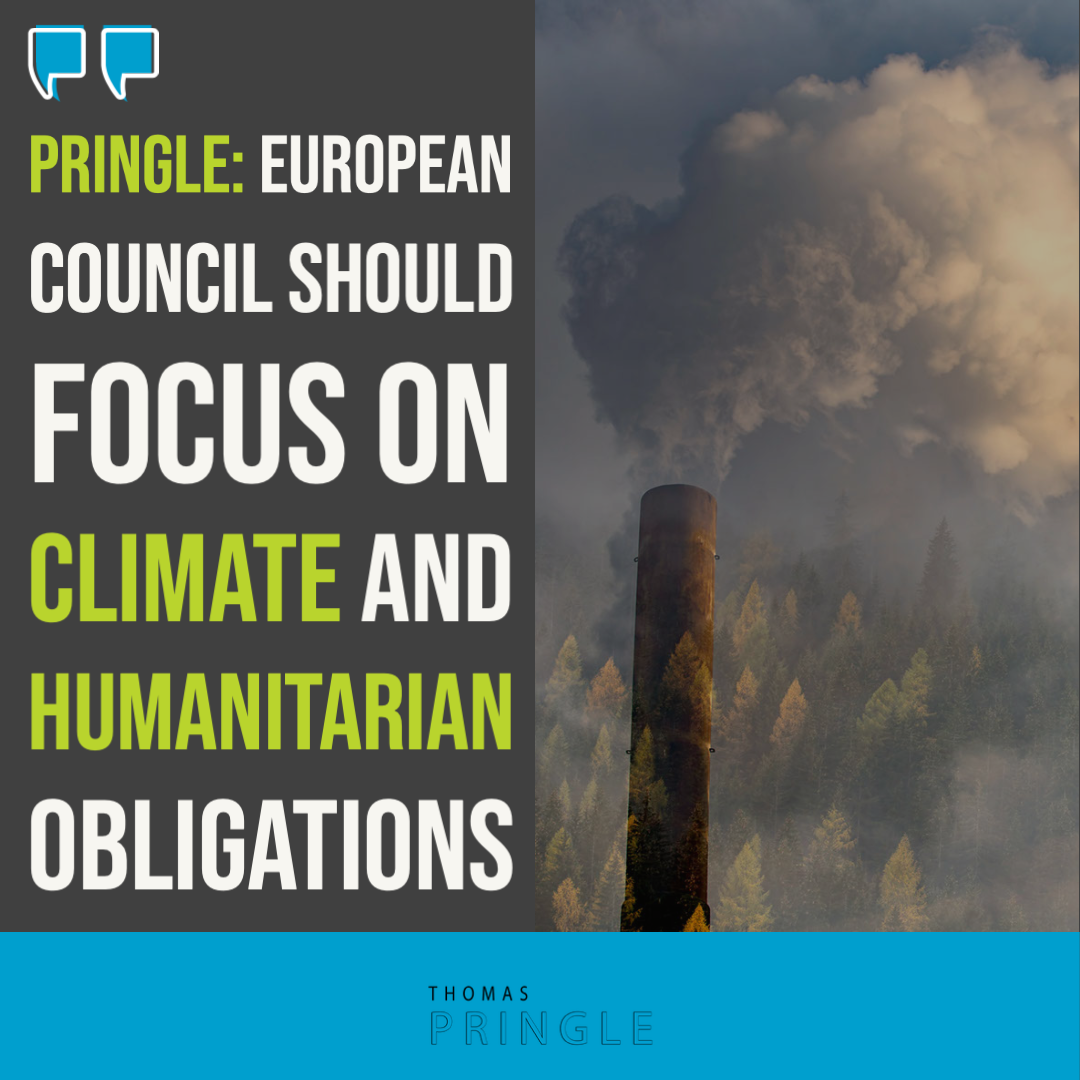- Pringle: We need a policy that recognises the importance of inshore fishing
- Pringle: Disabled people and carers face crisis of State neglect
- Pringle: Failed FF/FG housing policies forcing people to put their lives on hold
- Pringle welcomes Donegal council motion on Occupied Territories Bill: ‘We cannot stand by in the face of genocide’
Pringle: European Council should focus on climate and humanitarian obligations
- Updated: 17th July 2023

Independent TD for Donegal, Thomas Pringle, said the European Council should focus on climate and human rights obligations, rather than allowing itself to be dominated by military and defense issues.
Addressing the Dáil on Wednesday, Deputy Pringle said: “It is also disappointing to see that the European Council has welcomed the decision to further increase the financial ceiling of the deceivingly named ‘European Peace Facility’ by €3.5 billion. When commenting on the last European Council meetings in April, I voiced my concerns and opposition to the funding that this ‘peace facility’ provides.
“At that time it had aimed to provide 1 million rounds of artillery ammunition within the next twelve months, as well as missiles. Now we are looking to increase that funding to deliver even more ammunition. How can we justify doing this in the name of peace? How can we demonise those advocating for peace talks and a ceasefire while at the same time supporting the provision of artillery through a ‘peace facility’?” he said.
The deputy spoke during Statements post European Council meeting of 29th-30th June.
Deputy Pringle said: “Ireland has not only allowed this to happen, but we have allowed our long-standing policy of neutrality to be completely undermined by the undemocratic ‘public forum’ that has been recently held.”
He said: “It was clear that the majority of panellists were opposed to our current policy of neutrality and that there was a complete lack of voice from those involved in humanitarian work or peacebuilding, despite our island’s unique expertise on peacebuilding. There was also no fact-checking of any misinformation being presented by the panellists and it is for these reasons that I believe that any recommendations that emerge from the forum are completely illegitimate.”
Deputy Pringle said: “What strikes me the most is that this public forum, and the recent European Council meetings, are completely dominated by talks of security and defence, yet each has failed to mention that the greatest threat to our collective security is the climate and biodiversity crisis that we currently face.
“This is the most pressing issue of our lifetime and not only are we failing to prioritise it, but we are actually failing to recognise this at all,” he said, adding that we are also failing to recognise that conflict contributes massively to climate breakdown and biodiversity loss.
He said: “I am glad that the Nature Restoration Law has been passed by the European Parliament, however I acknowledge that it is much weaker than it was when first proposed, which is disappointing. And we can thank Fine Gael amendments for that.”
The deputy said: “Because the law itself is flexible, what’s really important now is that the Irish government ensures fair, just and proper implementation and I will be keeping an eye on how they go about this.”
Deputy Pringle said: “Another extremely important issue that seems to have been completely left out of the European Council meetings is the recent drownings of migrant boats in European waters.
“I purposely say ‘left out’ because there is no way this could have been simply overlooked or forgotten, given the fact that the week before the meetings occurred, hundreds died off the coast of Greece after European authorities were made aware of an overcrowded and unseaworthy vessel and decided not to launch a rescue operation. The European Council’s silence on this issue is deafening and intentional, making it even worse.”
The deputy said: “These are the issues that the Council meetings should have been focused on and we need to stop allowing these meetings to be dominated by military and defence over our climate and human rights obligations.”



